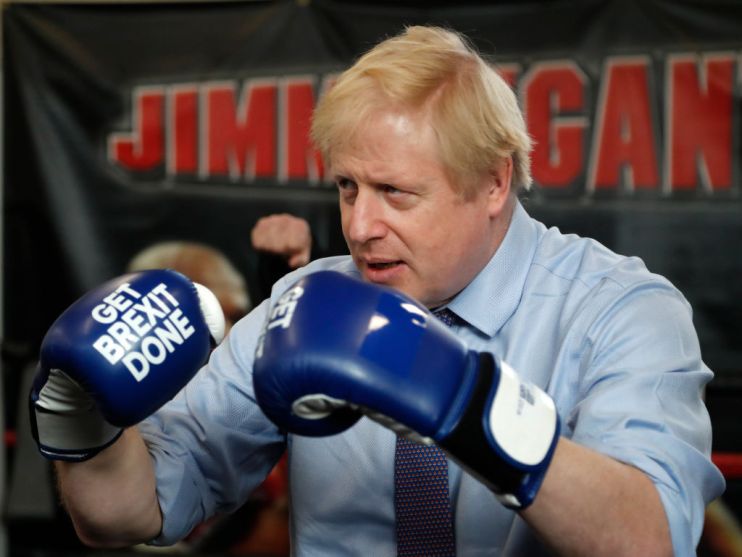Levelling up must mean unleashing our post-Brexit potential to reel in global investment

Our recovery from the pandemic, delivering the benefits of Brexit and fulfilling the levelling up agenda are the three cornerstone challenges Boris Johnson is facing. Investment is a key to all of those.
Rishi Sunak recognised that in the budget with policy initiatives ranging from super deductions to special economic zones. Public investment alone, however, will not be enough. Only by reeling in additional business investment will levelling up initiatives be genuinely sustainable.
Before the onset of the pandemic, the UK’s inward investment stock was the highest in Europe – worth more than France and Germany combined – creating more than 56,000 new jobs in 2019.
But between 1997 and 2016, the number of projects attracted to the UK located outside the capital fell by 15 per cent. This is a missed opportunity for Britain. While politicians must ensure London retains its status as a thriving global city post-pandemic, we must also have an eye on attracting productive mobile investment. It is one of the best ways we can revive the economy as we shake ourselves free from lockdowns and bring in firms and investment from overseas after Brexit.
While some may baulk at an activist or interventionist stance, this approach has been successful in the past. In the 1980s, the then Thatcher Government made the case to Japanese automotive manufacturers to locate to the UK. Their actions have paid dividends for generations. The Nissan plant in Sunderland is now one of the most productive car plants in Europe, employing thousands directly and tens of thousands indirectly.
But to replicate that achievement, the UK will have to be successful in an already crowded field. The UK’s offer for internationally mobile investors, while attractive, is significantly underpowered – especially in comparison to our international competitors, according to research by Onward.
More and more countries around the world are developing aggressive policies to attract investment. Last year, Japan started a $2.2 billion fund to encourage firms to reshore production. Canada is investing $1.26 billion over 5 years to attract certain strategic technology investments. Israel offers grants to set up in certain areas, while Germany offers nationwide grants which are larger in eastern Germany. Sweden offers a personal tax break to international investors. As we recover from the pandemic – when businesses look to shorten their global supply chains and increase their resilience – this trend will only accelerate further.
The Government clearly recognises the need to do more to attract and retain mobile investment. Since it was set up last year the Office for Investment has already yielded results. However, we need to go further to match our competitors’ efforts. At a national level, there is a lopsided emphasis between exports (which rightly enjoy institutional support and budget) and investment. This must be corrected and the office for investment must be given more muscle to pull in financial capital.
The UK has more sophisticated inward attraction in London, which has reaped dividends, but not elsewhere. London possesses one of the UK’s strongest investment promotion organisations and replicating that model with associated powers and funding for other English Mayors would be a strong start to boost competition. This is not about positioning other cities as a series of competitors to London for future investment, but to create a network of cities promoting the UK as a place to invest and performing a vital aftercare function – a key to retention, to ensure that investment is for the long term.
The challenge for ministers will be how to build on the measures announced in this year’s budget as well as last week’s Queen’s Speech, to attract inward investment and use it to boost productivity, wages and opportunity right across the country.
Membership of the European Union previously limited the discretion of the government over where the UK could offer local inward investments, this choice is now open to ministers once again. Ministers are already showing signs of activism, with the introduction of freeports and a super deduction for capital allowance. However, freeports will benefit a relatively small geographic area and the capital allowance super deduction is only temporary.
To make the investment sustainable and have an impact for generations to come, we need structures which allow and encourage capital to flow through to all parts of the nation from around the world.